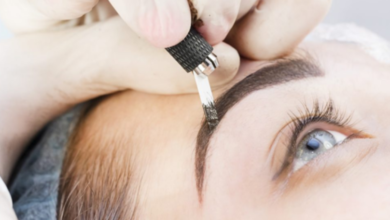Early Signs of Anxiety and Depression in Adolescents: What Parents Need to Know

The journey through adolescence is often painted as a time of self-discovery, burgeoning independence, and exciting new experiences. However, beneath this vibrant facade, many young people grapple with significant mental health challenges. Anxiety and depression, far from being fleeting moods, are serious conditions that can profoundly impact a teenager’s development, academic performance, and overall well-being. Recognizing the early signs of these disorders is crucial for parents, guardians, and educators to ensure timely intervention and support. Ignoring these subtle shifts can lead to more entrenched problems, making early detection and access to appropriate care, such as that offered by specialized anxiety treatment centers, paramount.
Understanding the Landscape: Adolescent Mental Health Statistics
The statistics surrounding adolescent mental health are sobering. According to the National Institute of Mental Health (NIMH), an estimated 49.5% of adolescents aged 13-18 have experienced a mental disorder at some point in their lives, with anxiety disorders being the most prevalent. Furthermore, 13.3% of adolescents experienced a major depressive episode in the past year. These figures underscore the widespread nature of these conditions, emphasizing that no family is immune. It’s not a matter of “if” a teenager might struggle, but rather how quickly and effectively we can identify and respond to their needs.
Unpacking the Early Signs of Anxiety in Teenagers
Anxiety in adolescents can manifest in various ways, often subtly at first. It’s more than just occasional worry; it’s a persistent, often overwhelming sense of dread or unease that interferes with daily life.
Behavioral Changes to Watch For
- Increased Irritability or Restlessness: A previously calm teenager might become easily agitated, snap at family members, or seem unable to relax. They might fidget constantly or express a feeling of being “on edge.”
- Avoidance Behaviors: Notice if your teen starts avoiding situations they once enjoyed, like social gatherings, school events, or even specific classes. This avoidance is often a coping mechanism for fear or discomfort.
- Changes in Sleep Patterns: Difficulty falling asleep, frequent waking, or nightmares can be strong indicators. Some teens might also oversleep as a way to escape their anxious thoughts.
- Physical Complaints: Anxiety often presents with physical symptoms such as frequent headaches, stomachaches, nausea, or muscle tension, even when there’s no apparent medical cause.
- Difficulty Concentrating: Anxious thoughts can make it hard for teens to focus on schoolwork, conversations, or even hobbies, leading to a decline in academic performance.
Emotional and Cognitive Indicators of Anxiety
- Excessive Worry: This is the hallmark of anxiety. Teens might worry excessively about school, friendships, the future, or even seemingly minor issues.
- Fear of Judgment or Failure: A heightened concern about what others think or an intense fear of making mistakes can paralyze a teenager, preventing them from trying new things or taking risks.
- Perfectionism: While often seen as a positive trait, extreme perfectionism can be driven by anxiety, leading to significant stress and self-criticism.
- Panic Attacks: These episodes involve sudden, intense fear accompanied by physical symptoms like a racing heart, shortness of breath, dizziness, and a feeling of losing control. While terrifying, they are treatable.
Identifying the Early Signs of Depression in Adolescents
Depression in teenagers is not simply sadness; it’s a persistent mood disturbance that significantly impairs their ability to function. It can be particularly challenging to identify because it often mimics typical adolescent moodiness.
Key Behavioral Shifts Indicating Depression
- Loss of Interest in Activities: A noticeable withdrawal from hobbies, sports, or social interactions that they once enjoyed is a significant red flag.
- Changes in Appetite or Weight: This can go in two directions: either a significant increase in appetite and weight gain or a marked decrease in appetite and weight loss.
- Fatigue and Low Energy: Despite adequate sleep, a depressed teen might constantly feel tired, lack motivation, and struggle with even simple tasks.
- Social Isolation: They might spend more time alone in their room, avoid friends, and seem disengaged from family life.
- Increased Irritability or Anger: While sadness is a symptom, depression in teens often presents as irritability, anger outbursts, or aggression.
See also: Brightening Businesses and Homes: The Power of LED Lighting in Telford
Emotional and Cognitive Markers of Depression
- Persistent Sadness or Emptiness: A pervasive feeling of sadness, hopelessness, or emotional numbness that lasts for weeks, not just days.
- Feelings of Worthlessness or Guilt: Teens might express feelings of being “not good enough,” a burden, or excessively blame themselves for problems.
- Difficulty Thinking or Concentrating: Similar to anxiety, depression can impair cognitive functions, making it hard to focus, remember things, or make decisions.
- Thoughts of Death or Self-Harm: This is the most serious warning sign and requires immediate attention. Any mention of suicide, self-harm, or a preoccupation with death should be taken extremely seriously.
- Apathy and Indifference: A general lack of care or concern for things that once mattered, leading to a flat emotional state.
Taking Action: What Parents Can Do
If you observe several of these signs in your teenager, it’s crucial to act promptly. Early intervention significantly improves outcomes.
- Open Communication: Create a safe space for your teen to talk. Listen without judgment, validate their feelings, and reassure them that you are there to support them.
- Consult a Professional: Schedule an appointment with your pediatrician or a mental health professional specializing in adolescent care. They can provide an accurate diagnosis and recommend appropriate treatment.
- Explore Treatment Options: Depending on the diagnosis, treatment might include therapy (individual or family), medication, or a combination of approaches. For more severe cases or when outpatient care isn’t sufficient, exploring reputable anxiety treatment centers or facilities specializing in adolescent mental health can provide comprehensive and structured support.
- Educate Yourself: Learn more about anxiety and depression to better understand what your teen is going through and how you can best support them.
- Promote Healthy Habits: Encourage regular exercise, a balanced diet, sufficient sleep, and limit screen time. These lifestyle factors can significantly impact mental well-being.
- Be Patient and Persistent: Recovery is a process, not an event. There will be good days and bad days. Your consistent love, support, and advocacy are vital. Finding the right fit for your teen, whether it’s a specific therapist or one of the many quality anxiety treatment centers, may take time, but the effort is worth it.
Conclusion
The adolescent years are a critical time for mental health development. Recognizing the early signs of anxiety and depression is the first, most vital step toward ensuring your teenager receives the help they need. By being observant, communicative, and proactive in seeking professional support, parents can equip their children with the tools and resilience necessary to navigate these challenges and thrive. Remember, you are not alone in this journey, and help is available to guide both you and your teen toward a healthier, happier future.


